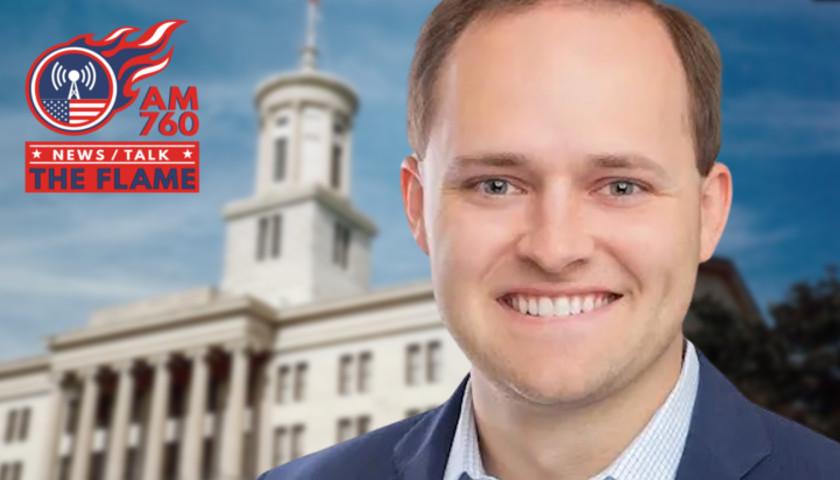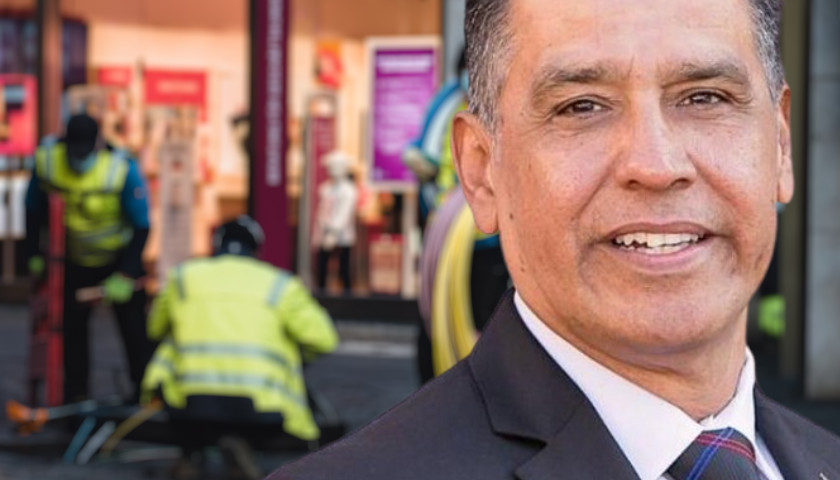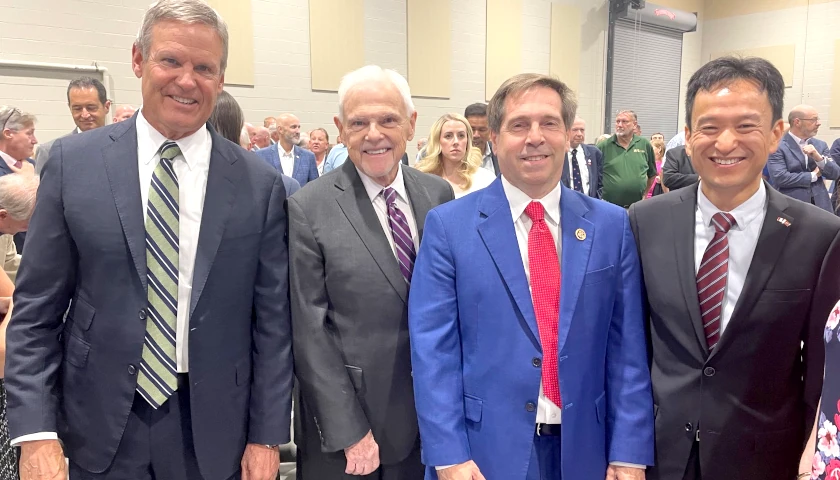On Monday’s edition of The Tennessee Star Report with Michael Patrick Leahy, Beacon Impact Director of Government Relations Jordan Long discussed why he supports Gov. Lee’s Tennessee Education Freedom Act. Long dives into the importance of expanding educational choice and the success of the existing program in three counties, highlighting the potential for exponential growth statewide and emphasizes the need for accountability measures. The Beacon Impact lobbyist also shares his valuable insights into the proposed legislation and its potential impact on education in Tennessee.
This is a must-read for the parents of school-aged children who are looking at the future of their children’s education.
TRANSCRIPT
Michael Patrick Leahy: Tell us a little bit about Beacon and Beacon Impact and how long they’ve been around and what the main mission is.
Jordan Long: So Beacon started as the Tennessee Center for Research and Policy and we’re actually going to celebrate our 20th anniversary next year at Beacon. After it was the Tennessee Center for Research and Policy, it was rebranded to “Beacon.” We’re part of the State Policy Network, so when you think of places like Heritage Foundation and the Cato Institute, we are essentially a Tennessee version of those organizations, and our focus is on Tennessee.
I’m registered to lobby the United States Congress and the Metro Council level as well as the state legislature. Our primary area of focus is, of course, the legislative issues that we take up. And so we do our advocacy work with Beacon Impact, and every year we take a handful of legislative items to the legislature.
Have those introduced. Of course, we also probably endorse 15 to 20 bills a year.
Michael Patrick Leahy: Your key bills that you want to push. Crom, you may recall, but I’m pretty sure that a fellow by the name of Drew Johnson was the founder of what became the Beacon Center. Is that correct?
That’s correct. Yep. And I’ll tell you a little personal story.
So, I had to go into Washington D.C. last week and on my way back, I’m there in this overly-crowded national airport thinking, ‘Oh, please get me out of here.’ And I look over and who is sitting there, but Drew Johnson.
Drew Johnson now lives in Nevada. Drew ran for their version of Metro council and lost by 300 votes.
He spent $2 million on it. He was outspent $5 million to $2 million. He is now running for Congress in Nevada, and it’s in one of the 10 seats that Republicans believe they can flip. So, you know, when you work for Beacon Center or Beacon Impact, Jordan, look at all the career opportunities that may arise.
Jordan Long: There are a ton. Beacon is a great organization in a lot of ways very grateful for them.
Michael Patrick Leahy: So let’s talk a little bit before we go to break about the main thing that you guys are focusing on in this upcoming general session of the Tennessee General Assembly. They convene what? January 9th?
Jordan Long: January 9th.
Michael Patrick Leahy: January 9th. And the governor has put forward a bold agenda to basically ultimately make educational scholarships or savings accounts available to every Tennessean. Tell us what you know about the key components of that plan and why.
Jordan Long: Yeah, well first, I’ll start with why we support his proposal.
We filed our first school choice bill at Beacon Impact probably a decade ago, maybe more. And it’s taken that long to get to the point where we are, where we now have only three counties that are a part of a program where parents get to choose the best educational option for their student. The other 92 counties don’t have that choice.
And it’s amazing that after so many years of working on this issue that that’s where we’re at. And it’s going to take this big push to get these other counties to be a part of that. We cannot continue to go county by county. And as an expansion, what we know so far is that the governor’s proposal is a statewide Education Freedom Scholarship.
Michael Patrick Leahy: Now, we have 95 counties in the state of Tennessee. And today, the three counties where you can participate in this are Davidson County, Shelby County, and Hamilton County.
In Chattanooga and Shelby – Memphis – too, but you have to be in a failing school district.
Jordan Long: Yes; they have some parameters around who can participate in that program in those, in those counties.
What’s great about the Governor’s proposal is that we’re going to unleash the full potential of educational choice in Tennessee, once we get this passed.
Michael Patrick Leahy: Now, what a great phrase: “Unleash the full potential of educational choice.”
You like that, Crom?
Crom Carmichael: Yeah, you create competition and you’ll have a lot of entrepreneurs who are educators and what I think you’ll find is that they’ll decide, ‘I’m going to open a school that educates children that have this level of ability or these types of issues,’ and so they will become expert at working with certain – for example let’s say that a child has a chronic illness that keeps them from attending school more than, say, 20 days a year.
They’re not chronically ill all the time. But they have a chronic illness that flares up from time to time. Well, once you miss more than a certain number of days in Tennessee today, whether it’s a public or private school, it doesn’t matter what your grades are, you get, you get demerits against your grades.
Michael Patrick Leahy: So with the kids who have that condition, this would give perhaps an entrepreneur an opportunity to create such a school that could address that.
Crom Carmichael: Or children who are on an autistic spectrum, which is a very wide spectrum, by the way; or children that have dyslexia or something like this where they can think, their mind is smart, but the way they process incoming information is different than “normal.”
And educators will learn how to work with these kids and they will make it clear in their offering.
That is what they focus on.
Jordan Long: Absolutely. There’s a lot of entrepreneurship in the school choice movement.
Michael Patrick Leahy: Jordan Long with Beacon Impact, right now, today, how many kids are participating in this program in those three counties?
Jordan Long: I’d have to get the, the exact number, but there are several thousand students who have been accepted into the program, and it is growing rapidly
Michael Patrick Leahy: And when we come back, we’ll get the idea of where this has headed.
How many kids do we think will participate in this, have the freedom of choice in education?
We’re talking with Jordan Long Director of Government Relations for Beacon Impact.
You’re listening to the Tennessee Star Report; I’m Michael Patrick Leahy.
We’ll be back after these messages.
* * *
Jordan Long: In 2020, there were about 977,000 students.
Michael Patrick Leahy: A million since and we’ve been growing. I think there’s only a couple thousand in the program right now. At the peak of this program, they’re anticipating – what – 20, 30, 40 thousand kids?
Jordan Long: Yes; for the ’24-’25 year, they want to have funding for 20,000 students.
Michael Patrick Leahy: Okay, that’s the first year. And I know in other states, they’ve got like 70,000 kids. Would they have, I don’t know, up to 100,000 kids in this? Or is that sort of reaching a limit?
Jordan Long: But you know, I don’t know. I think it depends on how well, you know, what the kind of approval is from parents, right?
When parents are happy and they want to, with what their student is enrolled in, the school that their students enrolled in, there will be more students who take advantage of that.
Arizona had exponential growth in their program. It’s very popular there.
And when schools grow that fast, when the program grows that fast, you have to be really careful with implementation.
And so we have to make sure that as we implement the program, we do it in the best way possible.
Michael Patrick Leahy: Some critics would say you’re not going to be able to absorb all that growth.
Jordan Long: I don’t think that, you know, when we have funding for 20, 000 students in the first year and increase over time until everyone who has the desire to attend a school that is best suited for them, you will have, we have had schools that have opened in different areas.
There are new schools in East Tennessee. There will be new schools that have grown in other places. We have a school in Martin that’s a church-affiliated school. And when I talked to someone from their school, I said, ‘what happens when Wheatley County and the surrounding areas can take advantage of the parents tax dollars?’ and they said, ‘exponential growth.’
Michael Patrick Leahy: That’s an interesting point.
Crom Carmichael: Yeah, that’s what I was saying, what you’ll have is you’ll have entrepreneurs who open up educational entrepreneurs who are able to help a particular segment of the population Get a far better education than the current system either public or private currently allows.
Michael Patrick Leahy: Okay – a little Devil’s Advocate. You ready?
What if an entrepreneur in, say, Nashville decides they want to open a school that teaches Sharia law? What would prohibit these funds from being used by that entrepreneur to attract students to that?
What do you think, Jordan?
Jordan Long: Well, under Supreme Court precedent, you cannot deny those dollars to be given out based on religious affiliation, if I’m correct. And so, the best mechanism for accountability in any school is, especially when you have a school choice program, is how well the school does, right? And that’s what, pushing back on critics that say that, ‘oh, there’s no accountability.’
What happens when you don’t like a restaurant that you go to, you had a bad experience, you just don’t go back.
Michael Patrick Leahy: Well, I understand, but there’s a – I forget the guy’s name – there’s a gadfly attorney here in town, who’s actually had multiple disciplinary problems, who opposes this. And he says, I’m going to open up a, basically a Sharia-compliant private school and I’m going to take taxpayers’ money to do that. How will that be stopped?
Jordan Long: Yeah, I’m not sure under the details that we have so far for the proposal. I don’t have those details. And I don’t know whether or not a school has to teach certain things to be accredited. These are all things that’ll be in the bill.
Crom Carmichael: So I’m gonna respond to you by saying that if such a school and I don’t, you know, I’ll be honest with you right now, can somebody open a school and
Michael Patrick Leahy: Hey, I’m opening a school, give me some money.
Crom Carmichael: No; if they open a school and private schools today, there are schools in Nashville who have the word Christian in the name of the school.
And so I assume that they teach Christian values. Let’s assume for purpose discussion, that they teach Christian values along with reading, writing, and all the other things. That you’d want your child to learn.
So my question is, Michael, if you’re going to allow schools to teach Christian doctrine, and have those schools accept the educational savings accounts, then if somebody wanted to open up a school teaching Sharia law.
Then, then you can’t deny that.
Michael Patrick Leahy: See, this would be – and I’m just talking to the people that are going to oppose this – this would be an argument that some would make against it. Now, in this instance of the gadfly attorney who’s got all sorts of disciplinary problems, whose name escapes me at the moment, I think he’s just blowing smoke on this thing to cause aggravation. I don’t think he’s serious about it.
Crom Carmichael: Opening a school and teaching children is no simple task.
Michael Patrick Leahy: My guess on this is there will be some minimum approval standards for the school.
Crom Carmichael: Right.
They’ll have to – just as charter schools have to meet certain standards in order to get a state charter from the board of education – a local district may turn down the charter school, but then they get to apply to a state committee and they can get chartered, but they still have to meet certain standards.
Right. So if one of the things they taught was Sharia law, but they also are really good at reading, writing, and science., my guess is that school would meet the standards.
Michael Patrick Leahy: See, and that will be, I think, a political objection that some would raise to this. And that would be some of the details, don’t you think, Jordan, that they’re going to have to work out on the bill?
Jordan Long: Yeah, they’ve got a lot of details that we just don’t know yet. But, at least in the proposal the details that we know that private schools in categories one, two, three, four, and five.
Michael Patrick Leahy: Oh, hold on. Hold on. You just lost me. There are categories one, two, three, and four and five. Yes. And by the way, just when we talk, and when I talk to J.C. Bowman, from Professional Educators of Tennessee, he’s got the lingo. Right? And all of it sounds like, what are you talking about?
That this category one, two, so what’s one, two, three, four, and five. What’s that?
Jordan Long: So the categories for these private private schools are just depending on their type of accreditation or who they’re accredited by.
So that’s, you know, like Crom mentioned, you’re going to have to have some sort of accreditation to be able to receive these funds. Like I said, we don’t have all the details yet, but in this proposal – the one pager that we’ve got – you’ve got to be one of these five categories for a private school to be eligible to receive these funds.
Michael Patrick Leahy: Well, here’s the other argument. And let’s say some rural school districts, right? There’s not necessarily going to be a big enough crowd – a big enough market – to create a school.
In many of these rural areas where a lot of the state representatives who are perhaps on fence on this, but there are provisions for homeschooling and back to your entrepreneurship idea here.
There are provisions for micro-schooling, right? Which is apparently, like, a step between homeschool organized groups and and a full blown private school where you’d have like 10 kids, 15 kids all grouping together with one or two teachers following a curriculum.
Are you, are you up to speed on micro-schooling and how this might fit in?
Jordan Long: We are. We pay attention to micro-schools closely.
You gave a good example of that. It would be several students from a neighborhood that, you know, maybe one day they go to Crom’s house and that’s where they’re taught by a certified teacher who the parents together, collectively are paying for. And then the next day they go to your house.
We keep up with them because they are a good option in places that don’t have another type of school choice option.
Michael Patrick Leahy: Well, I’m going to give a historical example here on this. You know, in the early 19th century, when there really weren’t K-12 public schools – there wasn’t a public school system – the way kids were taught in rural areas is parents would gather together in the community, and they’d all pitch in and they’d hire a teacher.
And then they would find a little schoolhouse. And that they would teach, you know, 20 kids or 30 kids. They were almost the original micro-schools. Do you know who made a living doing that for a couple of years? Sam Houston.
So, you know, maybe we got some, some future modern Sam Houston’s ready to do some micro-schooling.
Crom Carmichael: Look at it in other states. I mean, Indiana is what, two or three years ahead of Tennessee. Florida is probably five or six years ahead. So you can, you can get some ideas of what happens when you have educational savings accounts because they exist in other states.
We are not the pioneer here.
Michael Patrick Leahy: No – but you could become a leader.
Crom Carmichael: Yeah, but you can see what’s happening already in other states and the fears that people throw out. ‘Oh, if you do that, this will happen.’ Well, then why hadn’t it happened in Indiana? And why hasn’t it happened in Florida? And even if it has.
Let’s say that it has negatively impacted a hundred children but the program has positively impacted 50,000. Do you let the enemy of the perfect keep it from happening?
Michael Patrick Leahy: And on that note, we’re going to take a break. We’ll come back with Jordan Long, Director of Government Relations with Beacon Impact after this.
You’re listening to the Tennessee Star Report.
I’m Michael Patrick Leahy.
– – –
Listen to The Tennessee Star Report with Michael Patrick Leahy weekdays from 11:00 am to 1:00 pm on WENO AM760 The Flame.
Photo “Jordan Long” by The Beacon Center; “Tennessee Capitol” is by Ichabod CC3.0.





